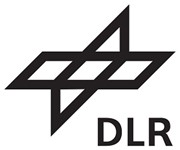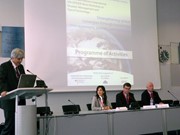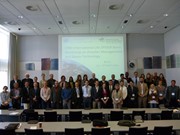5th United Nations International UN-SPIDER Bonn Workshop on Disaster Management and Space Technology: “Strengthening global synergies through knowledge management, portals and networks”
When: Tuesday, April 24, 2012
to Thursday, April 26, 2012
Where: UN Campus Bonn, Germany
Introduction/ Background
In its resolution 61/110 of 14 December 2006 the United Nations
General Assembly established the "United Nations Platform for
Space-based Information for Disaster Management and Emergency
Response - UN-SPIDER", as a programme of the United Nations Office
for Outer Space Affairs to provide universal access to all
countries and all relevant international and regional organizations
to all types of space-based information and services relevant to
disaster management. Since its establishment the programme
developed and implemented the Knowledge Portal as a gateway to
access relevant space-based information and solutions to support
disaster-risk management and emergency response.
The 5th International
UN-SPIDER Bonn workshop brought together decision-makers and
experts from the space technology and disaster management
communities representing national, regional and international
organizations, knowledge transfer and academic institutions, as
well as internationally active private companies to identify
knowledge management strategies that will enhance access to and use
of space-based information as a way to enhance the resilience of
nations. Taking advantage of the facilitating role that UN-SPIDER
plays at the international level, the aim of the workshop is a
roadmap, based on a set of objectives and tasks, needed to enhance
synergies among institutions and mechanisms that generate this type
of information and those institutions that use it in all phases of
the disaster management cycle. The UN-SPIDER Knowledge Portal will
be presented as a reference system to discuss information
dissemination practices and novel applications to enhance access to
and use of this type of information.
Workshop Topics
The main topics of the fifth international workshop will include:
- Knowledge management in the context of space-based information - enhancing the resilience of nations through the use of information: presentations and discussions on the challenges and critical needs faced by institutions that promote the use of space-based information to support all phases of the disaster management cycle and by those that need to use it.
- The role of Portals and Gateways as platforms to access space-based data and information to support all phases of the disaster risk management cycle: presentations regarding the UN-SPIDER Knowledge Portal and similar portals and gateways will open the forum to discussions regarding innovative ways in which regional and international organizations are developing their internet-based portals and gateways to streamline access to geo-spatial data and information.
- Synergies among international support networks and mechanisms: presentations and discussion on how to enhance synergies among networks, mechanisms and voluntary technical communities that generate space-based information to support government agencies in their tasks related to disaster risk management and emergency response.
- Novel IT tools and infrastructure to support disaster-risk management and emergency response: presentations and discussion on novel geospatial tools and infrastructure including geo-viewers and web-based mapping tools to assist disaster-risk managers and emergency responders in their tasks.
- E-learning environments. Presentations and discussions on e-learning environments as tools to enhance the skills of professionals and practitioners on the topic of space-based information for disaster-risk management and emergency response.
Target audience
The workshop will provide an opportunity for a limited number of selected cutting-edge presentations, while the focus will be on in-depth discussions within break-out groups addressing specific topics. The number of expected participants will be limited to 70 and will include disaster managers, policy makers, and providers of space technology solutions/tools/applications from Government, academia, NGO, and the Corporate Sector.
Outcomes
Expected outcomes of this workshop include:
- A road map to strengthen synergies among institutions that target the use of geo-spatial and space-based information to enhance the resilience of nations. The road-map should outline objectives and tasks to overcome critical challenges and opportunities available to reach this goal.
- Clearer directions and priorities for action regarding the operation of portals and gateways as tools to enhance access to and use of space-based information to support all phases of the disaster management cycle, and as tools to enhance the performance of regional and global networks.
- A review of novel applications of geo-viewers, web-based mapping tools, and other novel IT applications and infrastructure with particular emphasis on enhancing the use of space-based information in the areas of disaster-risk management and emergency response.
- A community of IT experts who can support the development of new applications in the UN-SPIDER Knowledge Portal.
- A review of innovative uses of e-learning environments to support capacity development and institutional strengthening.
Programme:
Read the programme here
Event Organisers:
United Nations Office for Outer Space Affairs (UNOOSA) German Aerospace Center (DLR)
With the Support of:
Federal Ministry of Economics and Technology of Germany (BMWi), Secure World Foundation, and the City of Bonn
Language of event:
English
Presentations:
Report
The workshop report can be found here.
For more information click here
or contact Natassa Antoniou nantoniou@swfound.org







 Share
Share